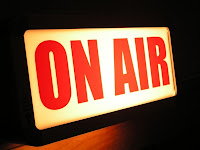During lunch with a friend today, he passed some scenarios by me for breaking a new act. One of the things he said seems to be what's now seems to be accepted industry knowledge, although I believe the logic is faulty.
"We're going to do vinyl and digital downloads but skip the CD. They're done." After discussing for a while what he was going to charge for the items, I told him my feelings on the matter.
1) Hoping to make money on any kind of music isn't living in reality, especially for a new artist that no one knows. That business model is dead and gone, even for all but the 1% (or less) of established artists.
2) Give your music away. That's what it's worth to most consumers - zero, nada - especially if they're not your fans. Music always has been a promotional tool for the artist, and the record label made most of the money anyway. Once you get over the idea that you can make money from the sale of your music, your mind will be free for other possibilities that can be monetized.
3) CD's aren't dead yet. They're a collectible, the same as a shirt or hat, and that's how they should be should be thought of. The fact is that they're not the be-all, end-all to monetizing your brand, and they really never were. Remember that there were 248 million CDs sold in the US last year that were counted (many sold at concerts don't hit Soundscan), so there still is a demand. You just have to adjust your thinking on the type of product it is.
4) But you can charge for a collectible. A collectible is a memento of a moment in time, and people will pay to relive that through an item that they'll buy. But you can't charge too much.
One of the problems with most bands and artists is that they price their swag way too high. Who pays $10 dollars for a CD these days? Who's willing to pay $20 for a T-shirt? Even legacy artists with a really great brand and nicely designed merch can have a problem at $35, which has become the norm at a concert.
Find out your costs, including tax, shipping, the commission you give to the swag salesman, and everything else that might be hidden, and mark it up by 20% - 25% to build in some margin. Especially if you're just starting out, think of these items as
promotional. The fact that you might get someone to cover your costs by buying your merch, and even make a little as a result, is a bonus. You can charge more later once you develop a rabid following that wants everything ever connected to you, and you've proven that the market will bear the higher price.
If you're audience wants CD's (some still do, believe it or not), pull a
Radiohead and let people pay what they want for them, or set the price extremely low so you can at least cover your costs. Once again, it's promotion. I'd rather people pay at least something because that way they've made a commitment to listening to it. A CD given away for free will most likely hit the garbage before it ever hits their ears.
As far as digital downloads, give them away for free on your website, and charge for them on
iTunes,
Amazon and all of the streaming networks too. Study after study has found that downloads sell better when they're available for free, as weird as that sounds.
5) Don't buy inventory. The days of order 500 or 1000 of anything are over. Get just enough to have a few on hand (like 10 or so), and order anything else on a as-needed basis. For CDs, you can order from 1 to 100,000 for a fixed fee of $1.75 from
Kunaki.com. For all other merch, you can do the same at
Zazzle.com or
Cafepress.com.
We're living in the age of
Music 3.0. It's time to take advantage of it.
----------------------------------
You should follow me on
Twitter for daily news and updates on production and the music business.












